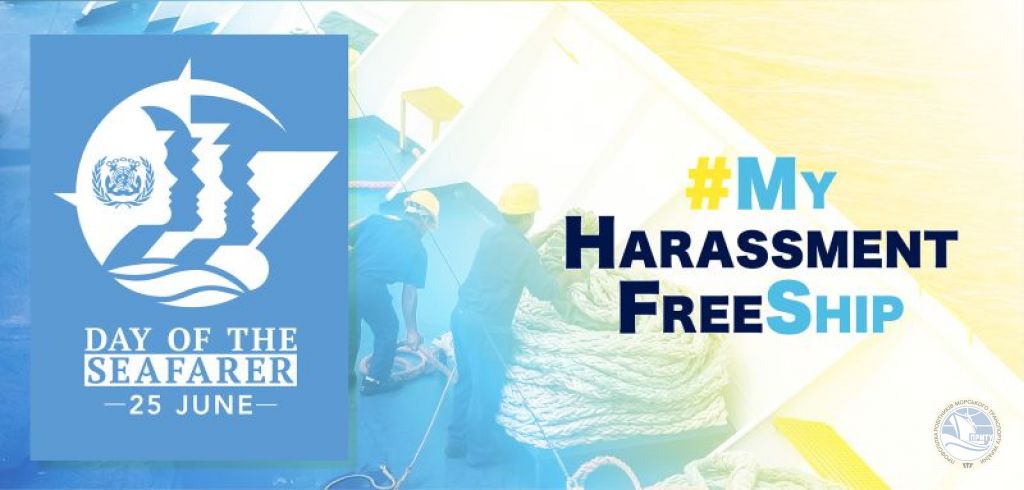As the COVID-19 pandemic continues to impact global trends, countries around the world are updating and setting new restrictions affecting shipping.
The COVID-19 outbreak creates a particular risk to crews on long voyages without calling at any port and without access to shore-based medical facilities. Such an outbreak endangers their safety and well-being and may affect their ability to operate the ship safely.
The International Chamber of Shipping (ICS) has released an updated Guide on Vaccination for seafarers. This Guidance addresses legal, liability and insurance issues that could potentially arise for shipowners from or in connection with vaccinations of crew for coronavirus (COVID-19). Everything about the rights, responsibilities and requirements of employers can be found in the new document.
Can a shipowner require/mandate seafarers to get a COVID-19 vaccine?
The UK government has indicated that the government does not plan to make the vaccine mandatory. Other countries may take a different approach and mandate certain vaccines to be compulsory (or demand proof of vaccination as a border or visa requirement).
Are vaccines safe?
All vaccines undergo multi-stage testing before being used among the population, first in the laboratory and then on human volunteers. Relevant national, regional or international bodies review and analyze test results. Authorities check the components of the vaccine, their quality, safety and effectiveness. When national and regional authorities make sure that the vaccine is effective in preventing disease and safe for humans, it is allowed for use.
What is the current situation with vaccination?
The Neptune Indicator also reports another positive trend with an increase in seafarer vaccinations to 49.5% in December. However, new problems may arise with the spread of the new Omicron. According to the indicator of the Global Maritime Forum, now, there is a significant improvement in the vaccination of seafarers, the mitigation of travel restrictions and even a reduction in the level of infection in the regions. But despite this, the rate of vaccination should not be reduced to ensure herd immunity in the future.
Informed and voluntary consent to the vaccination
The Guide emphasizes that vaccination requires an individual’s informed and voluntary consent. If an employee refuses vaccination, employers should consider the reasons given carefully. After all, each case is unique.
All data relating to an employee’s health must be kept securely and should not be retained any longer than is necessary to perform duties as an employer. Such data should not be disclosed to third parties unless the employer is legally obliged to do so.
The employer is obliged to provide personal protective equipment, as well as to take care of social distance. He can change the responsibilities of an unvaccinated employee to reduce his contact with other crew members.
If an unvaccinated worker poses a threat to the health and safety of other personnel, the employer may take measures to prevent him from working.
Can a shipowner amend/vary existing contracts of employment to require the seafarer to get a vaccine as a condition of employment?
It is unlikely that an employer could reasonably amend an ongoing employment contract to make it a requirement that an employee be vaccinated if this is against the employee’s wishes.
However, there are some sectors and job roles where employers might be able to argue that the person in that post needs to be vaccinated for health and safety reasons e.g. because social distancing is not possible (with or without PPE).
The shipowner must have regard to the circumstances of the particular ship and the primary obligation to ensure the health and safety of all on board and the safe operation of the ship.
Should vaccination take place on board?
Currently COVID-19 vaccines can only be accessed through national, government-run vaccination programmes. The industry is reviewing ways for seafarers to obtain authorised vaccines in the near term and this may include vaccinations to take place on board under approved conditions.
Is the shipowner liable for the consequences of vaccinating seafarers, including any side effects?
Seafarers are protected from the financial consequences of sickness, injury or death occurring in connection with their employment. Accordingly, if a crew member is vaccinated during the course of their employment and subsequently falls ill due to a reaction to an approved vaccination, then the shipowner’s liability for illness and/or death, under the terms of employment and any applicable Collective Bargaining Agreement (CBA), would apply as it would with any other illness.
Availability of vaccines
Although in the longer-term supply is not expected to be an issue given the number of vaccines indevelopment, at present stocks of COVID-19 vaccinations are limited and are not available for private sale.
Each State has its own priority list for rolling out the vaccine. For seafarers already on a tour of duty, there is
no guarantee that a State other than their State of nationality/ residence will consider them for vaccination
at all or for priority vaccination. There have been reports that the AstraZeneca vaccine could be available
for private purchase in India. While general availability remains restricted any secondary private market
could carry increased risks of a particular vaccine batch having been illegally acquired or fake/unsafe. This
would make due diligence in vaccine sourcing even more important. It may also make requiring vaccination
for seafarers more likely to be deemed discriminatory.
General recommendations
Preliminary examination of crew members is recommended to identify any suspicious cases. Screening before may boarding include testing or measuring the temperature with non-contact thermometers.
Screening before boarding should be carried out as a risk mitigation measure, regardless of vaccination or recovery status, as vaccinated persons may still be infected and disseminate the virus to others on board.
The full text of the Guide can be found at:






